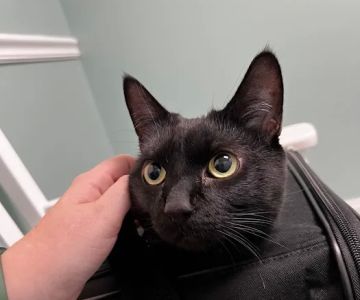Can Veterinary Nurses Sign Vaccination Cards?
As a pet owner or someone working within the veterinary industry, you may be curious about the role of veterinary nurses and whether they have the authority to sign vaccination cards. This question often arises when discussing the legal and professional responsibilities of veterinary staff. In this article, we will explore the answer to this question and look at the broader scope of duties that veterinary nurses perform in the field of veterinary care.
Understanding the Role of Veterinary Nurses
Veterinary nurses play an essential role in the care of animals. They are trained professionals who work alongside veterinarians to ensure animals receive the best possible care. Their tasks include administering medication, assisting in surgeries, conducting health assessments, and providing advice to pet owners. While they are highly skilled and knowledgeable, their authority is regulated by specific guidelines and laws in various regions.
The Legalities Surrounding Vaccination Cards
Vaccination cards, also known as vaccination certificates, are legal documents used to record the vaccination status of animals. These cards serve as proof that a pet has been vaccinated against diseases such as rabies, parvovirus, and distemper. In most cases, it is the responsibility of a licensed veterinarian to sign these cards, as they are the ones administering the vaccinations and assessing the overall health of the animal.
So, can veterinary nurses sign vaccination cards? In most cases, the answer is no. While veterinary nurses are critical to the vaccination process, they do not typically have the legal authority to sign vaccination cards. This responsibility generally falls on the licensed veterinarian. However, veterinary nurses can assist in the administration of vaccines, perform pre-vaccination assessments, and provide owners with important information about the vaccination process.
Why Can't Veterinary Nurses Sign Vaccination Cards?
The main reason veterinary nurses cannot sign vaccination cards is because they are not licensed veterinarians. The signing of these cards requires a veterinarian’s judgment and legal oversight. Since vaccinations can have legal implications, especially in regards to travel or breeding, it’s important that a licensed veterinarian, who is qualified to make these decisions, is the one to sign the cards.
That being said, veterinary nurses are still integral to the vaccination process. They ensure that animals are properly prepared for their vaccinations and assist veterinarians during the procedure. Veterinary nurses are highly trained to administer vaccines in some regions, but the final step of signing the vaccination record remains with the veterinarian.
What Happens If a Veterinary Nurse Signs the Card?
If a veterinary nurse were to sign a vaccination card without proper authorization, it could create confusion or legal complications. In some jurisdictions, it could lead to potential penalties or affect the validity of the vaccination record. Therefore, it is crucial that veterinary practices follow the proper procedures and ensure that only licensed veterinarians sign official documents like vaccination cards.
Key Takeaways
In conclusion, while veterinary nurses are essential to the overall vaccination process, they are generally not authorized to sign vaccination cards. This task is reserved for licensed veterinarians, who are legally qualified to make the necessary assessments and sign the documents. Veterinary nurses provide invaluable support in the process, ensuring that pets receive the proper care and attention they need during their visits to the vet.
If you are looking for more information on veterinary care, pet vaccinations, or how to find trusted professionals in your area, feel free to explore our services at Scent Snob for the best recommendations in the industry.











